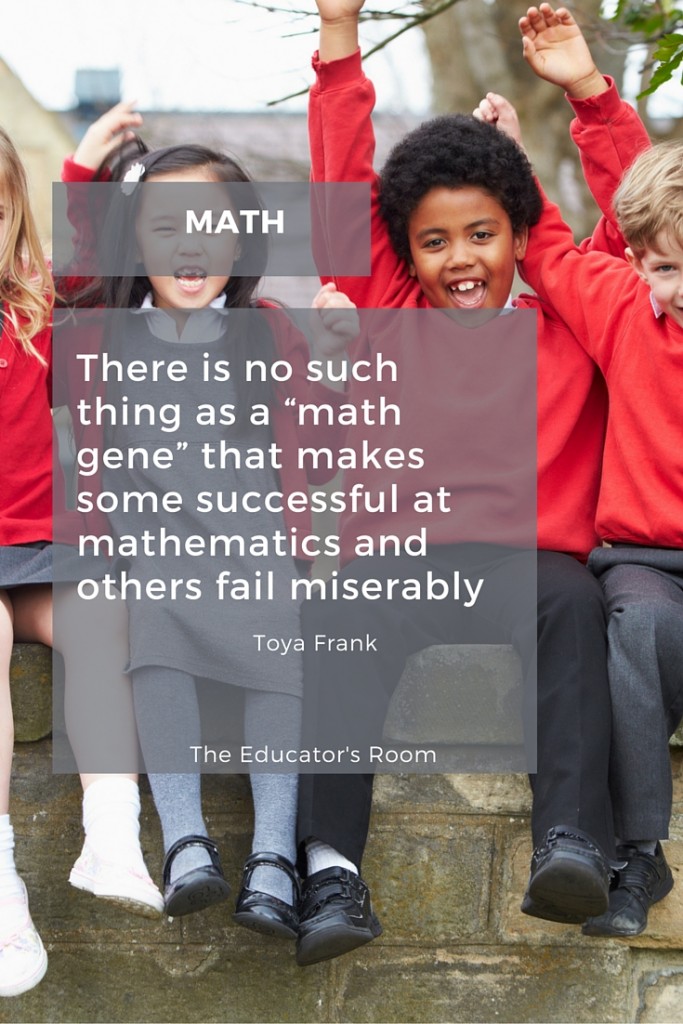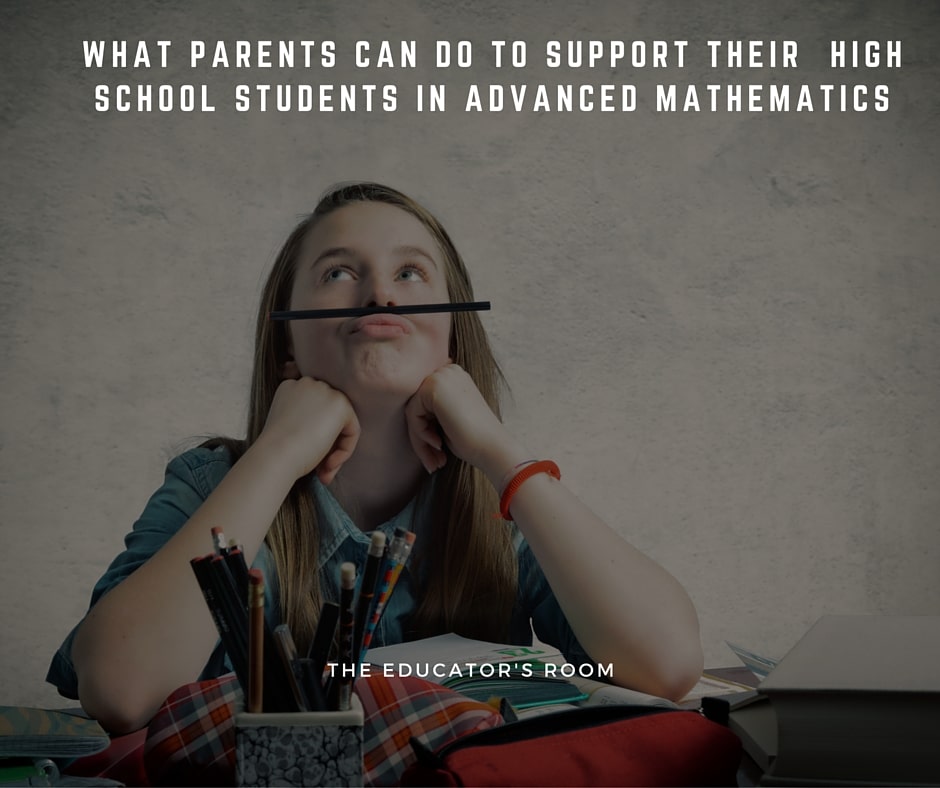In Part 1 of this article series, I suggested helping students to develop a new definition of “smartness” in mathematics. In Part 2, I will present some strategies that parents can implement both at home and with the support of their high schooler’s mathematics teacher. Again, these strategies require little to no advanced mathematical background, put they produce fantastic results.
Help your students find mathematics is their everyday lives.
I used to always emphasize to my high school students that they used mathematics all the time in their everyday lives without even realizing it. We make decisions based on chance. We shop and pay bills. We cook. We rearrange furniture. These are all tasks that involve mathematics – probability, spatial reasoning, or arithmetic and algebraic thinking. Researchers have begun to study how students use very sophisticated mathematical reasoning in everyday games and activities. In many cases, my students and I used advanced mathematics to study very mundane, ordinary things.
While I wouldn’t expect to see a parent at home modeling the trajectory of a basketball as a player shoots a basket (This sounds harder than it is.), there are other ways parents can highlight the importance of math in everyday life. Thinking about issues like “Is the data in this news report skewed?” and “What do the statistics presented in this article mean for me as a citizen of this community?” are excellent ways to discuss making inferences using statistics. Noted researcher Dr. Eric Gutstein calls the instances I described as using mathematics to “read” or understand our world. Mathematics can be used to generate meaningful conversations about life and the role that we play in the world.
Even doing everyday tasks like cooking, working on a budget, and helping to build things around the house may help students see the relevance of mathematics if parents highlight the mathematics in the tasks. Some may be surprised that I am suggesting these types of tasks for high school students, but you’d be surprised at the number of high-school-aged students who never learned or do not remember how to use a ruler or measuring cup properly or how to use proportional reasoning to change the serving size of a recipe. We can all use a refresher when it comes to the basics, and this can be done at home.
Cultivating these mathematical skills may lead to interest in some other branch of mathematics and science. During a class that I teach for prospective mathematics teachers, one of my students noted her love of roller coasters and how her mother leveraged that to develop her love of mathematics and physics. The next time your teenager is engrossed in playing a video or computer game or furiously pecking out a text message, think of how this could be used to promote interest in STEM (science, technology, engineering, and mathematics)-related fields.
What do you do to put math in your child’s everyday life?






